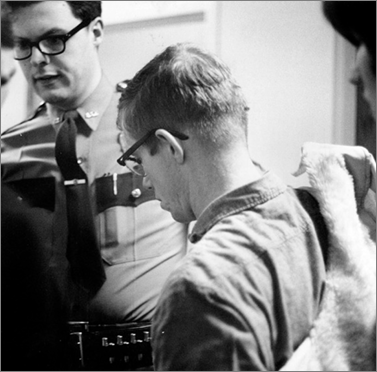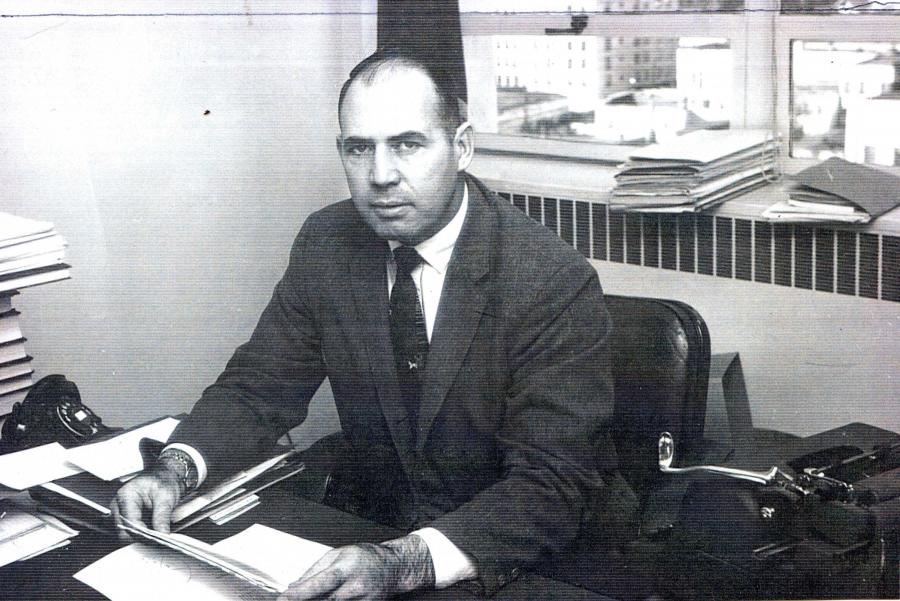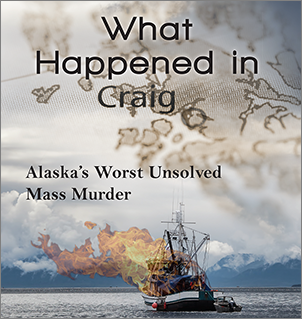There was never a question about how Judge Fitzgerald felt about Bob Hansen’s psychiatric profile. It was the Judge’s position that Hansen could be “extremely dangerous” to the community. It was the Judge’s position that the man needed psychiatric care. It was also the Judge’s position that Hansen’s condition “may be treatable.” That last assertion would prove prophetic, in all the wrong ways. As time went on, it became clear that there was no “may be” or “might be.” The only time Robert Hansen wasn’t stalking and harming the women of Anchorage was when he was in jail.

THE COURT: Mr. Hansen, is there anything you wish to tell me before I pass sentence, Judgment, or make a sentence this atternoon. either tending to show why I should not now do so or otherwiae on your behalf?
THE DEFENDANT: No, Your Honor.
THE COURT: I find you guilty of the crime of assault with a dangerous weapon in accordance with your plea. These are the factors I take into consideration. You’ve been once convicted of the offense of arson. I’m told it was ten years ago. From all reports that I get here, apparently there is no… you have and are able to get along well and are able to associate with others, who have come here to testify to their high regard for you. I’m told that you’re a capable and willing worker.
I believe you have a serious mental illness and one which makes you, under certain circumstances, extremely dangerous to others in the community. I think this condition requires psychiatric therapy and I’m told by the doctor that it’s the condition which he has apparently diagnosed or… your condition is one that may be treatable. I believe that this offense was committed, as the doctor tells us, during a period of dissociation which he states is a condition arising from your mental condition.
I’m going to sentence you to five years in prison, but I’m going to make some other conditions because I think that they are appropriate. First of all, I don’t know how long the psychotherapy is going to take place, but it must be given to you because, if it’s not given to you, in my opinion, you’ll be released from the penitentiary, and perhaps in an even more dangerous condition.

I’m going to make you eligible for parole at the discretion of the parole board, because if the progress in treatment is satisfactory or at a later point the psychiatrist can give a reasonable assurance that you are no longer a danger at large in the community, I think you should be released and I want to make it possible for the parole board to do this.
I think that you must have psychotherapy, or you must have psychiatric treatment, and I strongly recommend it, and I recommend as well that you be allowed a release to follow your employment or your work, because I’m told that you are a good worker, and I believe that you’re not a danger to the community as long as you’re subject to close supervision, and so long as that supervision is afforded you, I think that the danger to the community and the others to the community will be minimized.
Since the sentence that I have imposed is in excess of one year, you have the right to appeal it on the grounds that it is excessive, or that it’s harsh. In the even you choose to do so, Mr. Gilmore will assist you in any way. Do you understand the sentence?
THE DEFENDANT: Yes, sir.
THE COURT: All right, Mr. Gilmore? And Mr. Gilmore it is my intention, if he is not offered psychiatric treatment to do something in that connection.
MR. GILMORE: I’ll make sure that it’s done Your Honor, or bring it to the Court’s attention if it isn’t.
Judge James Fitzgerald was a perspicacious man; he saw Hansen for what he was. He retained his eye for truth during the course of a long and distinguished judicial career. From the Superior Court he advanced first to a position on the Alaska State Supreme Court and then on to the U.S. District Court for the District of Alaska. What he didn’t know then — couldn’t know — was that Robert Hansen would evade the psychiatric care the good judge prescribed. That Hansen would lie and dissemble and pretend. Robert Hansen had a deep hole in his being that he could not face.
The judge’s of Alaska missed that fatal eccentricity. Missed it at the community’s peril.
Copyright Leland E. Hale (2020). All rights reserved.

Purchase Butcher, Baker
Order my latest book, “What Happened In Craig,” HERE and HERE, true crime on Epicenter Press about Alaska’s Worst Unsolved Mass Murder.
